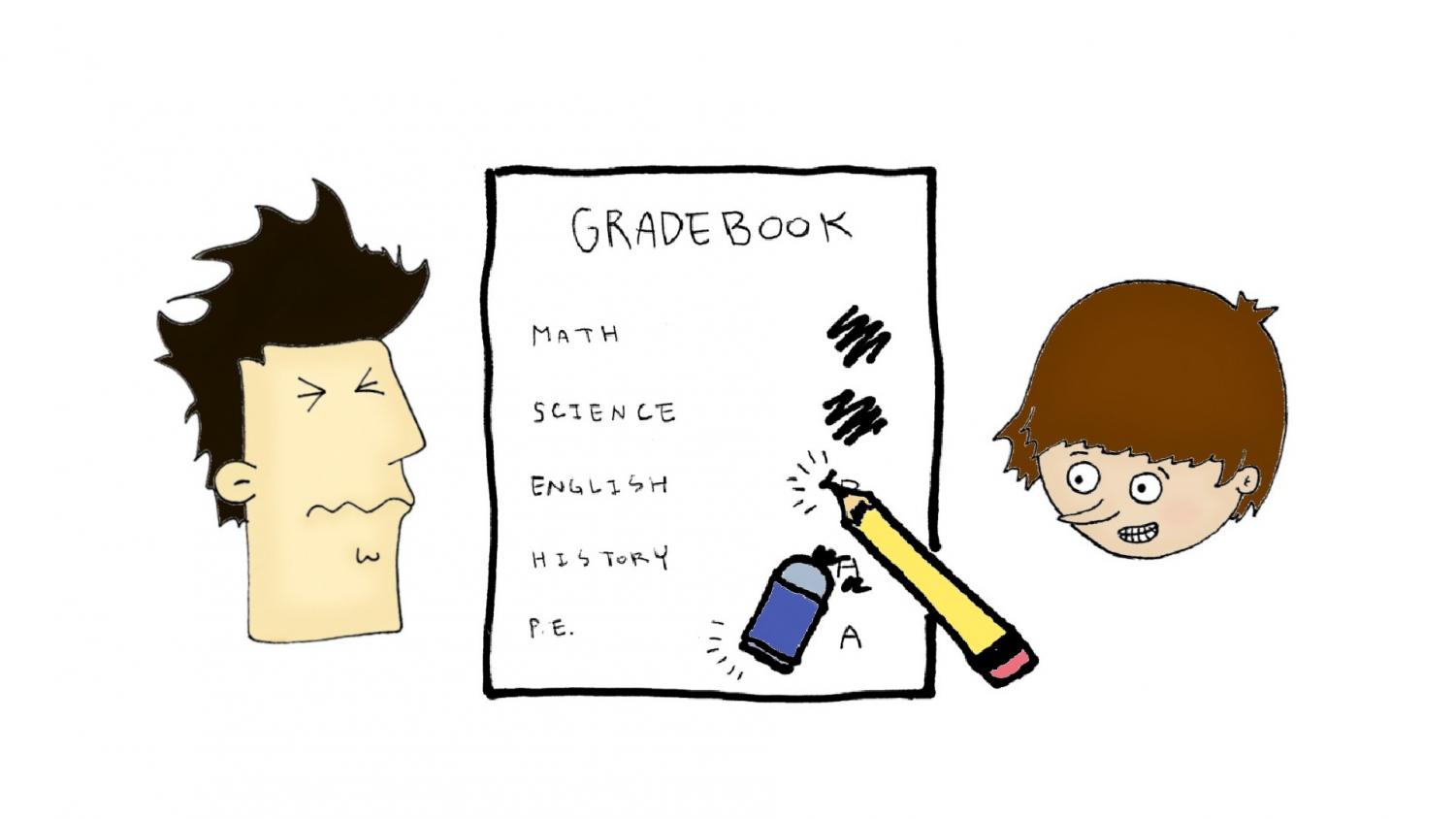Should the Gradebook be Blacked Out During Winter Break?
December 20, 2019
Take a Break, Make it Closed
As the end of the semester slowly creeps up on students, the unhealthy obsession of scanning the gradebook integrates itself into their daily routines. In a society that places immense pressure on students, making the grades unavailable for viewing throughout winter break is the perfect solution for helping reduce stress and anxiety.
“I think blacking out the grades is good because it prevents people from wasting their break worrying about grades,” sophomore Diya Nadig said. “If the grades are blacked out, students have the ability to actually enjoy their break instead of worrying the entire time.”
When we focus our attention on real-time, up-to-the-second reporting on the portal, we elevate the false idols of scores and grades and devalue what really has an impact on learning: positive student-teacher relationships, relevance and student engagement.
— Jessica Lahey
As a student, Nadig finds blacking out the grades during winter break mentally beneficial, but many students struggle to understand the fact that this decision provides a relaxing mental health break for teachers as well. Part of the Portola High’s social studies department’s decision to make the grades unaccessible to students was that it allows for both teachers and students to unplug from the exhausting environment.
“The [teachers that make the gradebook available] are often receiving emails from students over the break about grades, and so what we’ve noticed is that when the conversations about fluctuations in the gradebook continue into winter break, it defeats the purpose of having grade free zones,” social studies department chair Jon Resendez said.
By blacking out the grades, students are enabled to focus on caring for themselves during winter break while also maintaining a productive relationship with their teachers.
In a New York Times article, writer Jessica Lahey said, “When we focus our attention on real-time, up-to-the-second reporting on the portal, we elevate the false idols of scores and grades and devalue what really has an impact on learning: positive student-teacher relationships, relevance and student engagement.”
Due to reasons such as reducing anxiety during winter break for both students and teachers, blacking out the grades will aim to successfully serve its purpose by allowing the school’s population to cherish their winter break instead of stressing over it.

Claudia Lin is your co-editor-in-chief for her third year on the Pilot. She is looking forward to making as many memories as possible for her last year...
Keep it Open, Keep it Known
Do grades stress students out? Yes, most definitely. Will they be less stressed when prohibited from checking grades? Not necessarily.
Portola High has finally gotten to a point where students are applying to college: a process in which grades play a vital role.
According to the National Association for College Admission Counseling, “a student’s high school grade-point average is consistently a better predictor than test scores of a student’s likely performance in college.”
This leads many students to check their grades on a daily basis to keep track of their in-class performance.
The gradebook is an open and impartial means of communication for teachers and students, and therefore it must remain transparent over break. Grades are a clear-cut way for teachers to report and for students to receive tangible evaluations.
“It’s true that talking to your teachers gives you good advice, but it doesn’t do what percentage grades do,” junior Naomi Luper said. “It doesn’t give you that concrete grasp of where you are and how you’re actually doing on an objective scale.”
The most stressful scenario is when you really don’t know. It’s the uncertainty that makes us anxious.
— Robb Rutledge
Blacking out grades prevents students from tracking their progress in class. The logic behind hiding the gradebook is that it will turn students away from obsessively thinking about their grades. However, reality speaks differently.
“I think I’d be even more stressed out not knowing my grade,” Luper said. “I’d be constantly trying to calculate what I have in the class based on test scores and project scores.”
Since blacking out grades is not a school-wide policy, students will still have access to some parts of the gradebook. While grades from departments that implemented the policy will not be available, other subjects will still be visible.
“I think if we want to do something like this, it should be a school-wide policy,” counselor Melissa Gibson said. “If one department blacks out grades and another doesn’t, students are still going to be checking their grades in other subjects over the break.”
It is not likely that blacking out grades will reduce stress. Based on a study from University College London, “people are most stressed when they are more uncertain.” Study lead and neuroscience specialist Robb Rutledge stated that “the most stressful scenario is when you really don’t know. It’s the uncertainty that makes us anxious.”
Considering that the fundament of the gradebook is open communication, students’ access to their grades should not be limited. Blacking out grades does not reduce stress levels nor protect students’ rights to know; therefore the gradebook must remain transparent at all times.

Jaein Kim is the Director of Photography this year on the Portola Pilot. She is extremely passionate about visual media ranging from digital art to videography...

